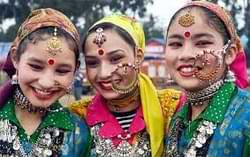
I sat down and gave Savitri a cup of chai.
“Savitri,” tell me a story about yourself. Tell me about your village. Tell me about you.”
Since my surgery, Savitri has been cleaning my house regularly. It’s an income for her, but there is compassion when she looks at me; she sees someone needing help and offers wholeheartedly.
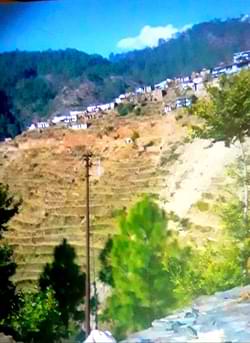
“I’m from Kalapur. It’s quite a small village, 134 houses. There were only about 50 houses when I grew up. My father was a mason and worked in wood, brick, and stone.
Our house is stone. He died about 4 years ago. He had a brain tumour and stomach cancer. He was a good man, but he had a very bad habit. He drank. A lot.”
She paused and took a breath.
“Kalapur, where my mother still lives, is about 7-9 hours by bus. It’s about 190 kilometres away, and the steep mountain roads make the travelling very slow.”
“Tell me a story,” I prodded.
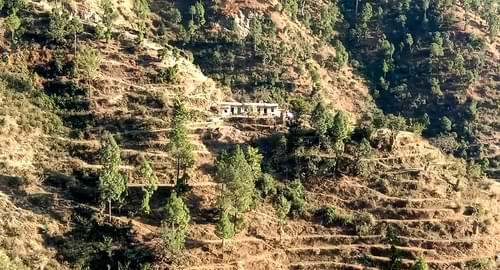
“My grandmother likes to tell the story of when I got lost. I was about 4 years old. A cloth seller came to the village. Mother had gone to the market. Dadi (Grandmother) was at home with me. The other villagers had gathered around the cloth seller to see what fabrics they might buy. Suddenly, Dadi noticed that I wasn’t around.
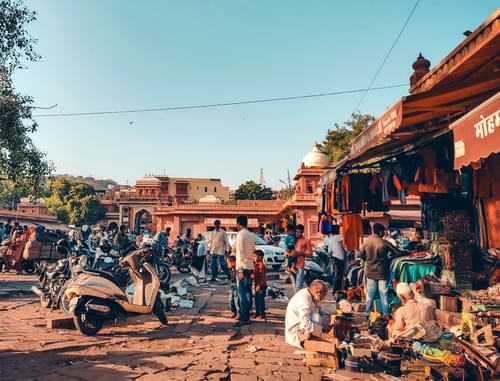
By then the cloth seller started asking when the bus would be leaving Kalapur. When he learned the bus was about to leave, he packed his wares at top speed, grabbed his bags and ran towards the village, disappearing around the first hill.
Dadi began yelling, “Savitri is missing, help! Find Savitri!” She was frantic. The crowd of neighbours began looking here and there without any luck. It was then that fear gripped Dadi’s heart, for a new bridge was being constructed, and new houses in the village were also popping up. Child sacrifice was illegal, but still practiced in the village. Children were sacrificed to dedicate new constructions.”
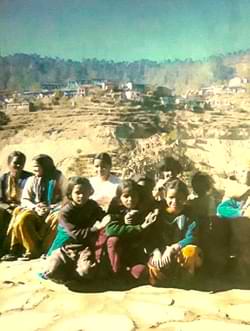
Savitri’s tone was becoming more agitated and angry.
“So, when Dadi noticed that the cloth seller had just run off and disappeared, she ran around recruiting the whole neighbourhood to search for me. She was terrified lest he kidnapped me for a sacrifice. The neighbors looked everywhere, combing through the house without success, until one man decided to search again.

He found me snuggled up, sound asleep underneath a thick quilt. Dadi was embarrassed, but happy.”
“Oh! What a great story!” I clapped my hands together, wanting more. “What about being a ‘Garhwali?’” I knew mountain people are proud of who they are.
Savitri smiled. “Growing up in the Himalayas carries an enchantment. If you live in the mountains, it’s easy to fall in love with the beauty around you, and the weather— as harsh as it gets—you grow to feel like you are rooted in this part of the world. So, we treat each other with respect for what it takes to live there, and enjoy each season. Garhwali’s are proud people. It is true. Many are poor and have basic educations, but times are changing and now people leave the hills to attend colleges and have careers. But that didn’t happen in my time. In those days, 8th class was like finishing school—girls were ready to be brides. I was also in that category.
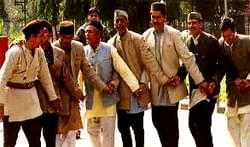
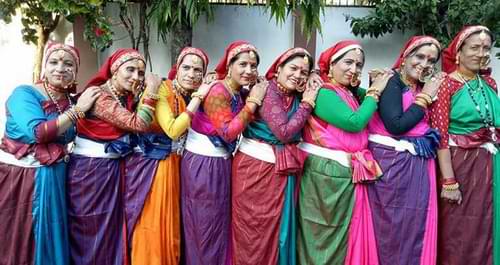
Girls had to be strong. Thirty years ago, a man searched out a bride as though he was buying a mule (which are very valuable in the mountains). They look at her biceps, and how strong she is, how much she can carry on her back. She must be able to carry water, climb trees to chop wood, walk miles in the mountains, and birth children. The villagers had hard lives, and the men needed working wives. It was practical.

I was lucky. I didn’t marry a villager. Because I was different than my brothers and sisters in what I believed, my parents married me to a Christian, even though they were Hindus. I was still 15 when I married, and didn’t know anything about Christians. I was happy to marry a Christian. He seemed kind. It turned out that he was very kind. We’d go to church, and there I learned about Jesus, and how he loves us so much. I was very excited to know that God loves us, and we can meet him anywhere, not just in a temple or by doing pooja. We can talk with him all through the day. So, I took baptism. My family never objected, but were happy for me to believe as I wanted to. My husband has always treated me well and with love and respect.
“Even so, we had a very difficult start to our marriage. The whole village always comes to a marriage, so all of Kalapur was there, and many from Mussoorie, which is where my husband’s family lived. It was good, all went well, until early the next morning.
“It was our duty to house all the guests. People were stuffed into our house, relatives’ houses, friend’s houses, and where ever a space was found. Early in the morning, we learned the sad news. My husband’s brother’s family had taken in many guests. They had a 3-months-old son. Attempting to keep tradition and hospitality up to the standard, they ended up sleeping with about 10 people in their large double bed. Their new baby, also in the bed, had been suffocated.
For years, that sister-in-law hated me. She couldn’t bear to be with me or talk to me. It made me very sad. I knew it wasn’t my fault and I felt sorry for her. Our marriage began with a grief that continued for years. Now, she has finally gotten over it. And I, understand her grief.
When I was 16, I gave birth to a son, Ranjeet. Ranjeet was 2 when we had a second son, Raju. Raju lived for two days before he was rushed from the hospital where I was staying with him, to be admitted in a speciality hospital with infant emergency care. They claimed that his stomach was full of dirty water and punched holes in it to drain it. I couldn’t bear to think of him with holes poked in him. It was too late. He never got the oxygen he needed. I wasn’t with him and I can’t believe they made holes in his stomach.”

Savitri looked down as tears ran down her cheeks.
“I cry whenever I remember how he was whisked away from me. It was very hard for me and his father. We spent a lot of time crying. Even now, we still cry. Raju would be fifteen this year. His two-year-old brother used to ask me, ‘Where is my new brother? Why can’t I see him?’ It is such a painful memory.”
The memory was 15 years old, but her pain was still fresh. Savitri wiped her cheeks and sniffed. “Now I have a daughter. I’d like another daughter. My younger brother’s wife always talked about killing her in-laws. Instead, she killed herself. We could never understand what my brother saw in her. She had two small children, a son and a daughter. My husband and I talk about taking them in.”
Savitri’s home is small, just a couple of rooms. She and her husband live with her mother-in-law. The poor seem to carry the biggest burdens, and yet own the biggest hearts. Their love is strong, having been tested by what it means to live in the harsh, but beautiful mountains. It compliments their proud character.
Sleep in Peace
